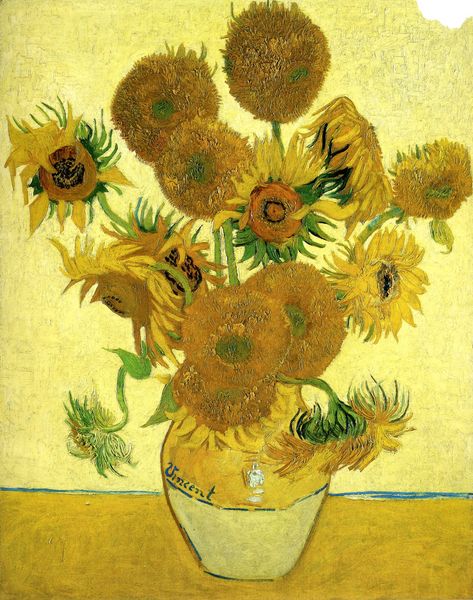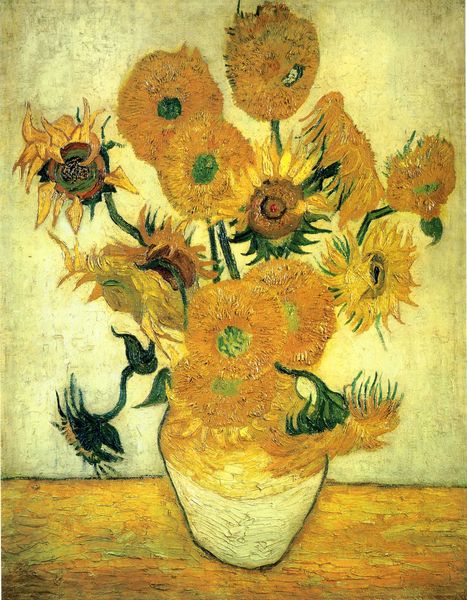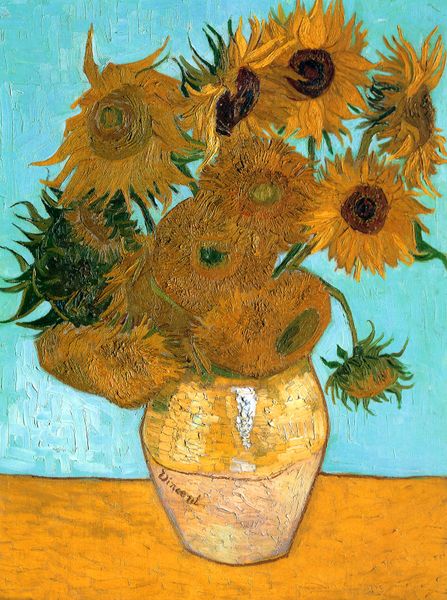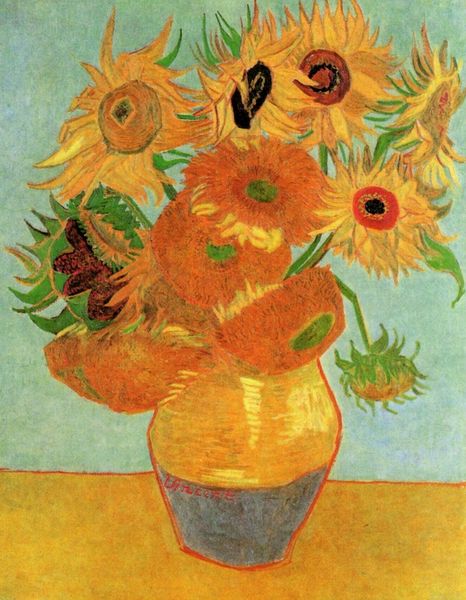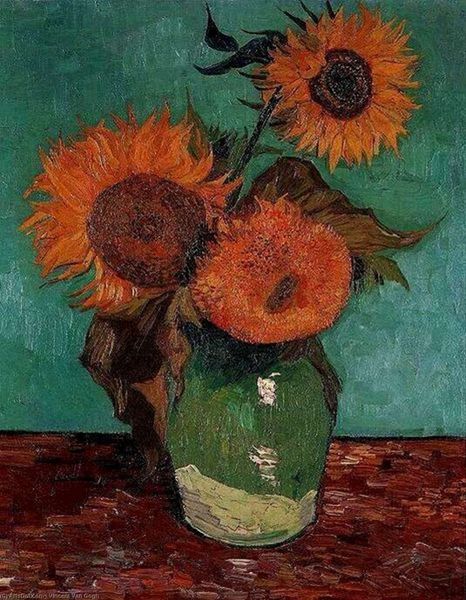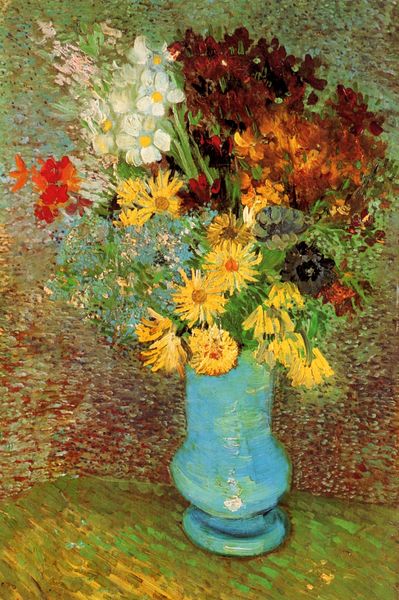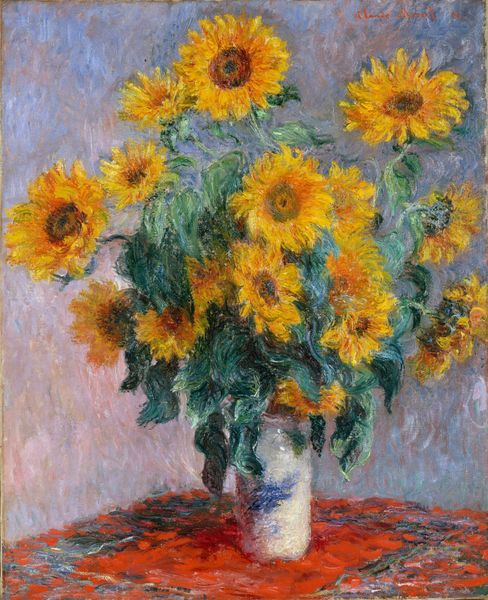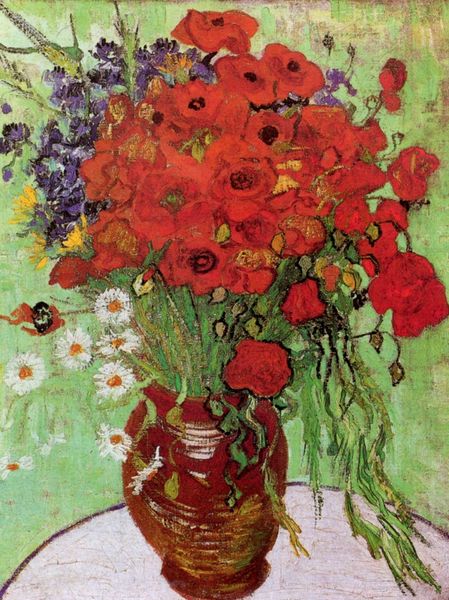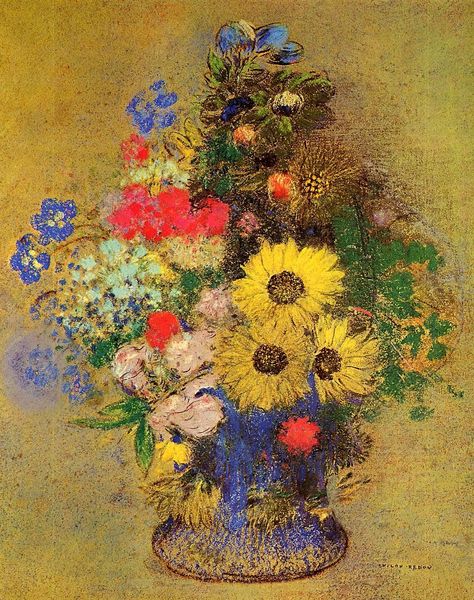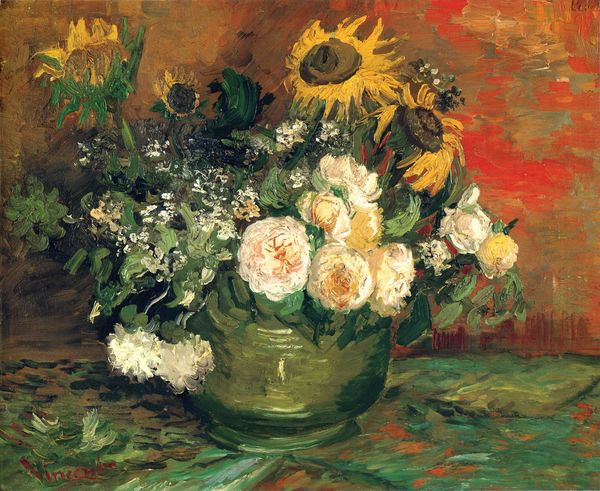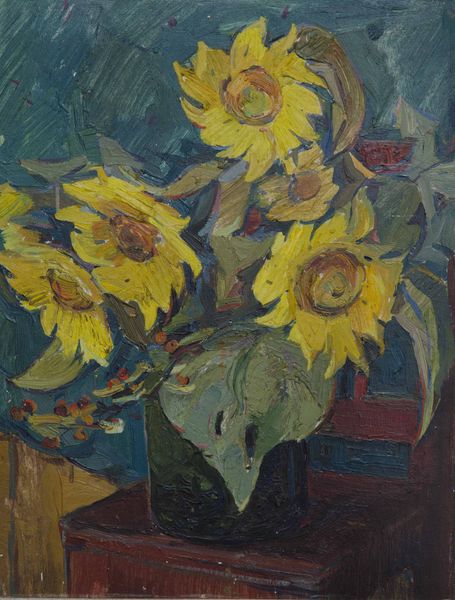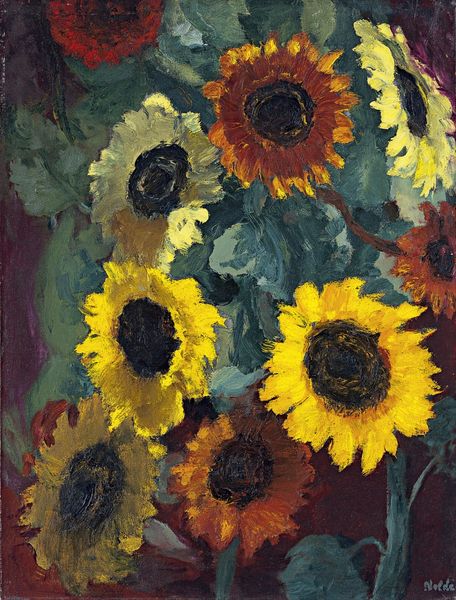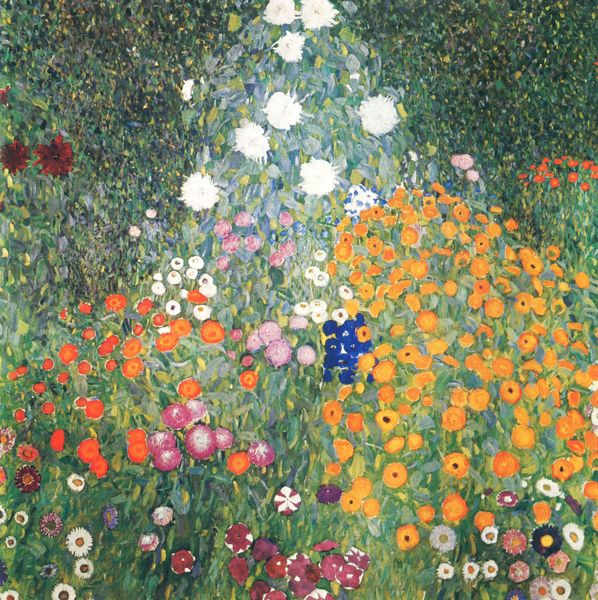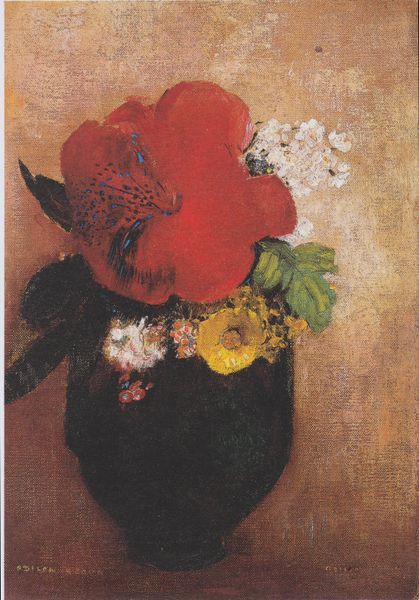
painting, oil-paint, impasto
#
painting
#
oil-paint
#
landscape
#
flower
#
impasto
#
plant
#
post-impressionism
Copyright: Public domain
Vincent van Gogh painted "Still Life: Vase with Fifteen Sunflowers" in the late 1880s, a period marked by his intense artistic exploration and personal struggles. Sunflowers held special significance for Van Gogh, symbolizing gratitude and friendship. He saw in them an expression of the vibrant, yet often harsh, realities of existence. The thick, expressive brushstrokes create a tactile quality, mirroring the intensity of his emotional state. The sunflowers are not merely observed; they are felt, embodying a cycle of life and death through their varying stages of bloom and decay. In a letter to his brother Theo, Van Gogh wrote about his desire to paint with the passion of a "Marseillais eating bouillabaisse," indicating the deep emotional connection he felt to his subjects. "Still Life: Vase with Fifteen Sunflowers" then becomes a mirror reflecting societal themes of mortality and regeneration, while at the same time serving as an intimate expression of Van Gogh's turbulent, passionate soul.
Comments
No comments
Be the first to comment and join the conversation on the ultimate creative platform.
